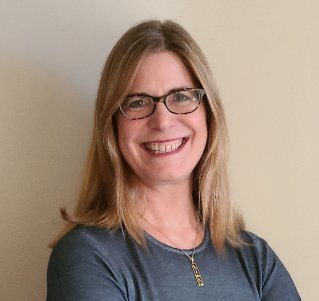April 02 2021 at 11:00PM
Will We Change? Climate Change Affects Us All Recap
On Wednesday, March 24, 2021, I joined the PMI-SFBAC Sustainability Team’s workshop, Climate Change Affects Us All, led by Adrienne Pierce, a Climate Reality Leader and Senior Director of Product Management at IronRidge, a leading supplier of solar mounting and racking. In this workshop, Adrienne walked us through a set of powerful slides to help us answer the questions “Must we Change?”, “Can we Change?”, and “Will we Change?”.
Adrienne Pierce
Adrienne set the stage through an interactive game on Kahoots, testing attendee’s knowledge on a variety of questions related to climate change. One of the questions prompted us to choose from possible years when climate change was first identified. Based on how much the world has changed in the last 30-40 years, I had assumed climate change had been identified in the 1930s or 1940s. Imagine my surprise when the answer was actually in the late 1800s. This made me even more curious to hear Adrienne’s presentation, specifically regarding the answers to the questions “Can we Change?” and “Will we Change?”
Adrienne started her presentation by asking the question, “Must we Change?” While I knew, of course, that the answer is, “Yes!”, Adrienne’s informative, fact-based slides explained clearly why we have to change. In this part of the presentation, Adrienne took us through a series of slides detailing not only humanity's impact on global warming but also the physical process by which the earth warms up. She then tied together mankind’s destructive burning of fossil fuels and other activities resulting in greenhouse gases to the natural global warming process, demonstrating that mankind's impact on the climate is increasing exponentially. She showed us that the “cost of carbon” is not only measured in the severe weather we see in the news or have experienced directly, but also political instability, climate refugees, species extinction, famine, ecosystem loss, water scarcity, impaired way of life, and so much more. Anyone slide presented by Adrienne on their own would have been a reason to reduce carbon emissions. However, by bringing all of these together and demonstrating the interdependencies, the imperative for change became very clear.
The next part of the program focused on the solutions available to combat climate change. Adrienne discussed the progress being made for green energy, specifically wind and solar. The good news is that growth in these areas has increased much faster than initial projections. By the end of 2019, worldwide wind capacity exceeded 2000 projections by a factor of 22x. For solar wind progress, the 2019 results also exceeded 2002 projections by a factor of 121x. In addition, there have been cost reductions for crystalline silicon solar cell modules as well as increases in global cumulative storage capacity for solar energy, which are improving options for the adoption of green energy. I see the benefits of the various green energy solutions directly when I turn on my LED lights at home or ride in my friend’s electric car. Reducing our carbon footprint and moving to green energy solutions offer hope of reducing the damage already done to the climate.
At this point, Adrienne posed her final question, “Will we change”? Adrienne highlighted local grassroots activity as well as global efforts such as the 2015 Paris Agreement effort to reduce greenhouse gas emissions. She stressed that we all need to do our part. In her words, we need to “use our voice, use our vote, and use our choices, because our world depends on it.”
Climate change was first identified in the late 1800s. Although progress has been made, we each need to be focused on reducing our carbon footprint. For me personally, some decisions have been fairly straightforward, such as deciding my next car will be electric, investing in ESG funds/companies, or voting for candidates who have similar values concerning green energy. Attending PMI’s Sustainability Group workshops, such as this one, are great opportunities to learn more about projects and topics which impact climate change.
Here is some recommended reading from Adrienne focused on climate change:

Misha Rubesch
----------------------------------------
Note from VP of Sustainability - Learn about regenerative farming and how it can reverse global warming at our April event, Kiss the Ground.



